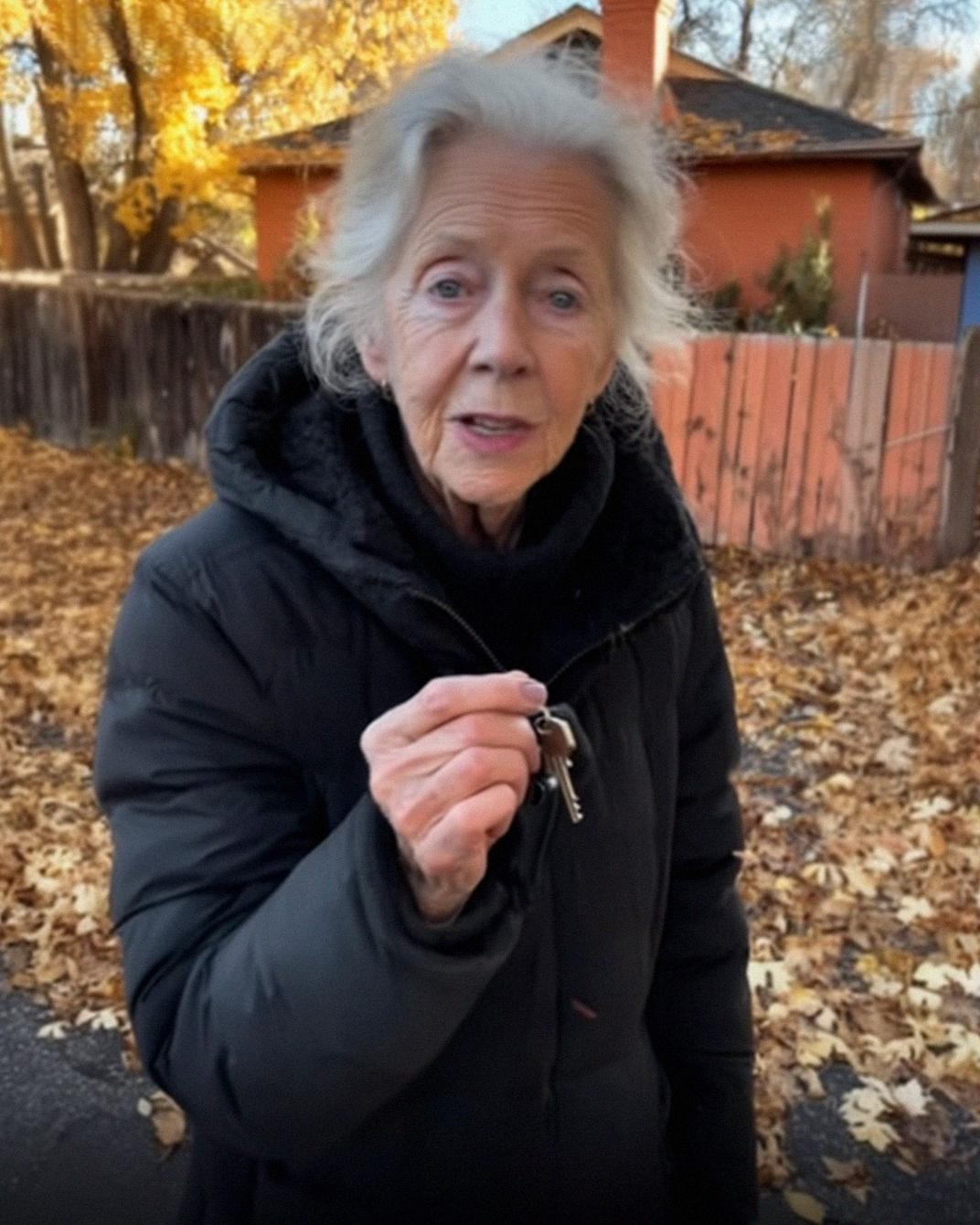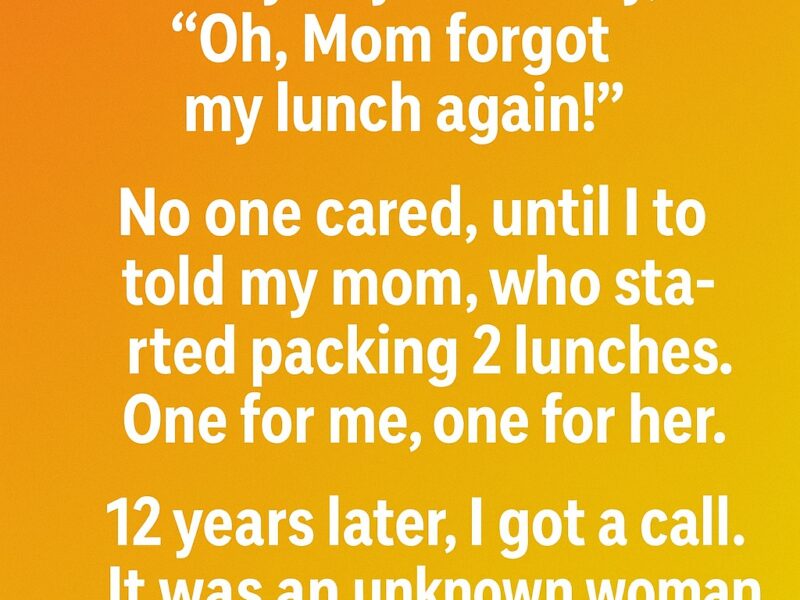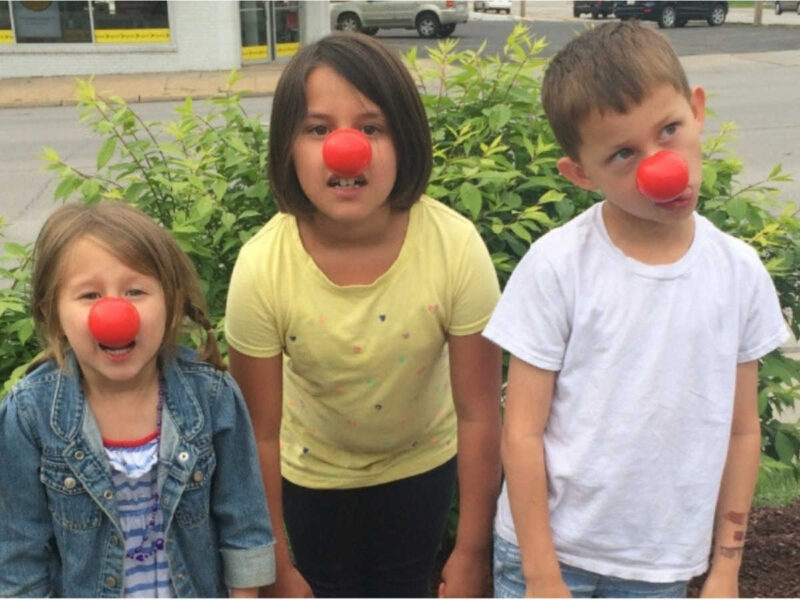When my grandmother died, I thought the hardest part would be saying goodbye to her house — the little white one on the hill that always smelled like lavender and old wood. I was wrong. The real heartbreak came later, when I found out what my husband had been doing behind my back.
My name is Mira, I’m 36, and I live just outside Portland with my husband Paul and our twin girls, Ellie and June. From the outside, we looked like the picture of a happy family. Paul was charming, successful, and devoted to the girls. We had a nice home, steady routines, and just enough chaos to feel real — spilled juice, movie nights, and Play-Doh ground into the carpet.
But after my grandmother passed at ninety-two, everything started to unravel.
Her house had always been my refuge. She raised my mom there, baked lavender cookies, told stories about the war, and smelled perpetually of Earl Grey and powder. When she died, I felt hollow. That home was her — everything she was, everything she loved.
Paul came to the funeral, held my hand tightly, looked solemn. I thought he was grieving with me. Later, I realized it wasn’t grief I saw — it was calculation.
Three days after the funeral, I returned to Grandma’s house to collect her things. Paul followed, impatient and restless.
“Mira, we should sell the place,” he said flatly. “We need the money, not another emotional project.”
I blinked at him. “The money? Paul, she’s barely gone.”
He crossed his arms. “It’s an old house. It’s not safe for anyone to live in. Let’s just be practical.”
I turned away. My throat tightened. Practical. That was his favorite word whenever he wanted to bulldoze something that mattered to me.
While he scrolled on his phone, I wandered through the rooms — her afghan still draped on the chair, teacups still in the sink, that familiar stillness hanging over everything. The air felt heavier than grief; it felt unfinished, like something was waiting.
As I was locking up, Mrs. Callahan, my grandmother’s elderly neighbor, called out softly from her porch. “If you only knew what your husband was doing here,” she whispered.
I froze. “What do you mean?”
She pressed an old key into my palm. “Your grandmother gave me this a month before she passed. Said to give it to you personally. It’s for the attic.”
The attic. I hadn’t been up there since I was a child.
Paul was still outside, tapping his phone. I told him I’d take a cab home. He started to protest, then shrugged and left.
Once he was gone, I climbed the creaking stairs. The attic door was small, painted over several times, but the key turned easily. Inside was dust, old boxes, and the faint scent of cedar. I thought maybe I’d find photo albums or keepsakes. Instead, in the corner, sat a weathered brown suitcase — the one I used to climb on as a child, pretending it was treasure.
My heart hammered. I unlatched it. Inside were documents — property deeds, letters, and a single envelope marked For Mira.
I sat on the floor, trembling, and opened it.
“My darling,” it began in her uneven handwriting. “If you’re reading this, I’m gone. I kept this from you to protect you. Paul came to see me many times. He told me to sell the house, said you needed the money. But something in his eyes frightened me. I think he’s hiding something. I left the house in your name. Be careful, my dear.”
I kept reading, my pulse roaring in my ears.
She wrote that Paul had insisted she sell, warned her not to tell me, claimed our finances were in danger. He’d even brought her papers to sign. She said she’d been scared and ashamed for believing him, that she’d stopped the sale at the last minute, but not before realizing he was desperate for money.
The letter ended: “If you can prove his deceit, the house is yours — entirely. Protect yourself and the girls.”
I sat there for a long time, numb. I pulled out the rest of the papers — the deed, the will, and the aborted sale documents, all confirming what she’d written. My grandmother, frail and dying, had been manipulated by the man I loved.
By the time I left, it was dark. I didn’t go home. I locked the suitcase in a storage unit and took the essential papers to the bank, securing them under my name. Then I went home and lay awake all night, staring at the ceiling, feeling my marriage crumble in slow motion.Couples therapy sessions
The next morning, Paul walked in wearing his usual crisp shirt and fake calm. “Where are the girls?” he asked.
“With my sister,” I said. “We need to talk.”
He frowned. “About what?”
“About why you pressured my grandmother to sell her house.”
He blinked, caught off guard. “What? Mira, who told you that?”
“I found her letter,” I said. “And the documents. You lied to her. And to me.”
His mask slipped for a second — just long enough to see the panic underneath. Then he forced a laugh. “Your grandmother was confused. She probably misunderstood. I was trying to help her, that’s all.”
I didn’t move. “You were desperate for money. Why?”
He hesitated, then sighed. “Fine. You want the truth? A guy from work had an investment deal — crypto startup, guaranteed triple return. I used part of our savings. It tanked. I was trying to fix it before you found out.”
“Part of our savings?” I repeated.
“Two-thirds,” he muttered.
It hit me like a blow. “So you gambled away our future — and when that failed, you tried to squeeze a dying woman for cash?”
“I did it for us!” he snapped. “For the girls!”
“No,” I said. “You did it for your ego.”
We argued for hours. He begged. He cried. He swore he’d get help. But the more he talked, the clearer it became — he wasn’t sorry for what he’d done. He was sorry he’d been caught.
That night, I slept on the couch. The next morning, I called a lawyer.
Within weeks, I filed for divorce. I kept quiet, calm, and deliberate — no drama, no shouting. Paul moved out before the papers were finalized. I kept the house. The one my grandmother had fought to protect.
Afterward, I repainted the living room, filled it with light again. I placed her photo on the mantel — her smiling, flour on her cheeks, hands in a bowl of dough. I framed her letter too, and hung it beside my desk.
Sometimes, when I walk through that house, I can almost smell her lavender soap again. It feels safe. It feels like her.
Paul tried to call a few times. I didn’t answer. There was nothing left to say.
In the end, my grandmother saved me twice — once in childhood, and once from the man I thought would love me forever. She left me her home, yes, but more importantly, she left me clarity. The kind that strips away illusions and shows you who people really are.
And now, every time I look at that house on the hill, I know it’s more than property. It’s proof that love protects, even when it’s gone — and that sometimes, the family you can trust is the one that’s been watching over you all along.


